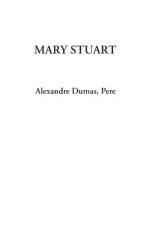This new act of firmness showed Huntly that the young queen was not disposed to allow the Scottish lords a resumption of the almost sovereign power humbled by her father; so that, in spite of the extremely kind reception she accorded him, as he learned while in camp that his son, having escaped from prison, had just put himself at the head of his vassals, he was afraid that he should be thought, as doubtless he was, a party to the rising, and he set out the same night to assume command of his troops, his mind made up, as Mary only had with her seven to eight thousand men, to risk a battle, giving out, however, as Buccleuch had done in his attempt to snatch James V from the hands of the Douglases, that it was not at the queen he was aiming, but solely at the regent, who kept her under his tutelage and perverted her good intentions.
Murray, who knew that often the entire peace of a reign depends on the firmness one displays at its beginning, immediately summoned all the northern barons whose estates bordered on his, to march against Huntly. All obeyed, for the house of Cordon was already so powerful that each feared it might become still more so; but, however, it was clear that if there was hatred for the subject there was no great affection for the queen, and that the greater number came without fixed intentions and with the idea of being led by circumstances.
The two armies encountered near Aberdeen. Murray at once posted the troops he had brought from Edinburgh, and of which he was sure, on the top of rising ground, and drew up in tiers on the hill slope all his northern allies. Huntly advanced resolutely upon them, and attacked his neighbours the Highlanders, who after a short resistance retired in disorder. His men immediately threw away their lances, and, drawing their swords, crying, “Cordon, Cordon!” pursued the fugitives, and believed they had already gained the battle, when they suddenly ran right against the main body of Murray’s army, which remained motionless as a rampart of iron, and which, with its long lances, had the advantage of its adversaries, who were armed only with their claymores. It was then the turn of the Cordons to draw back, seeing which, the northern clans rallied and returned to the fight, each soldier having a sprig of heather in his cap that his comrades might recognise him. This unexpected movement determined the day: the Highlanders ran down the hillside like a torrent, dragging along with them everyone who could have wished to oppose their passage. Then Murray seeing that the moment had come for changing the defeat into a rout, charged with his entire cavalry: Huntly, who was very stout and very heavily armed, fell and was crushed beneath the horses’ feet; John Cordon, taken prisoner in his flight, was executed at Aberdeen three days afterwards; finally, his brother, too young to undergo the same fate at this time, was shut up in a dungeon and executed later, the day he reached the age of sixteen.




